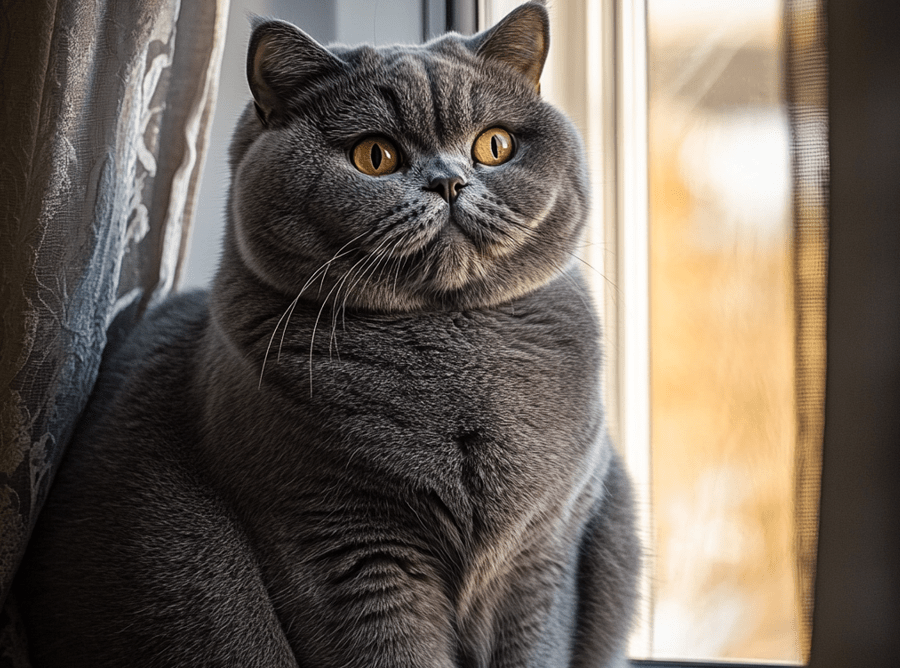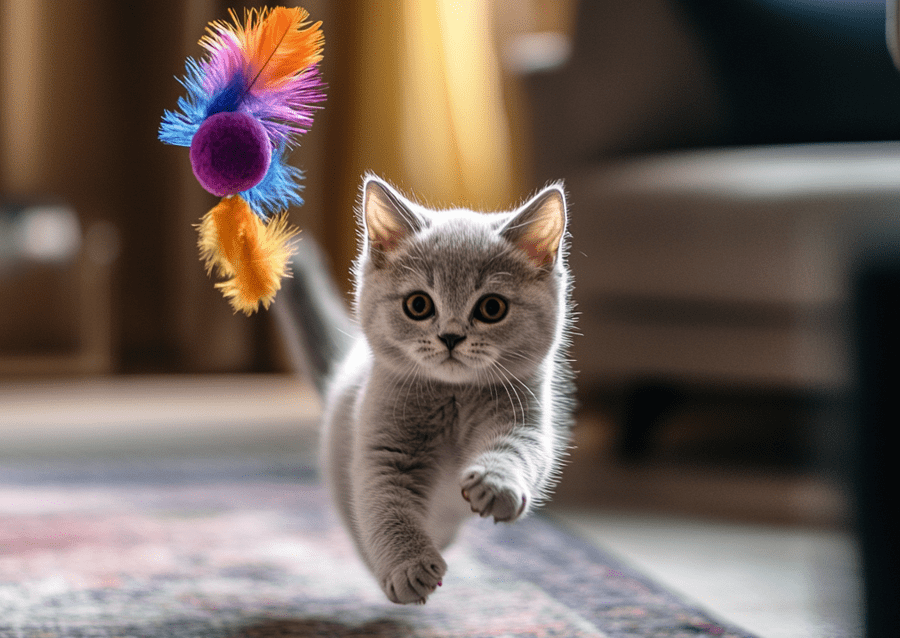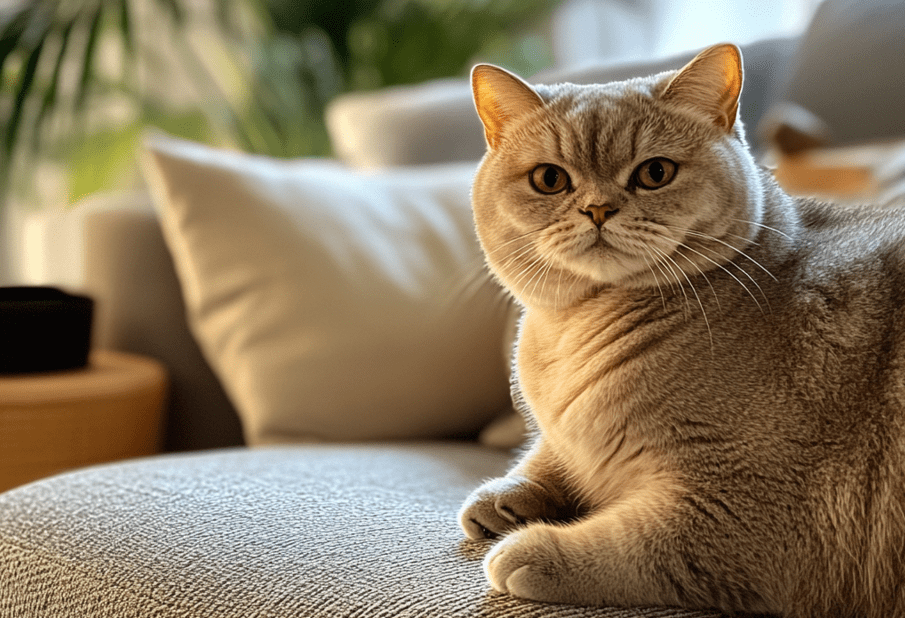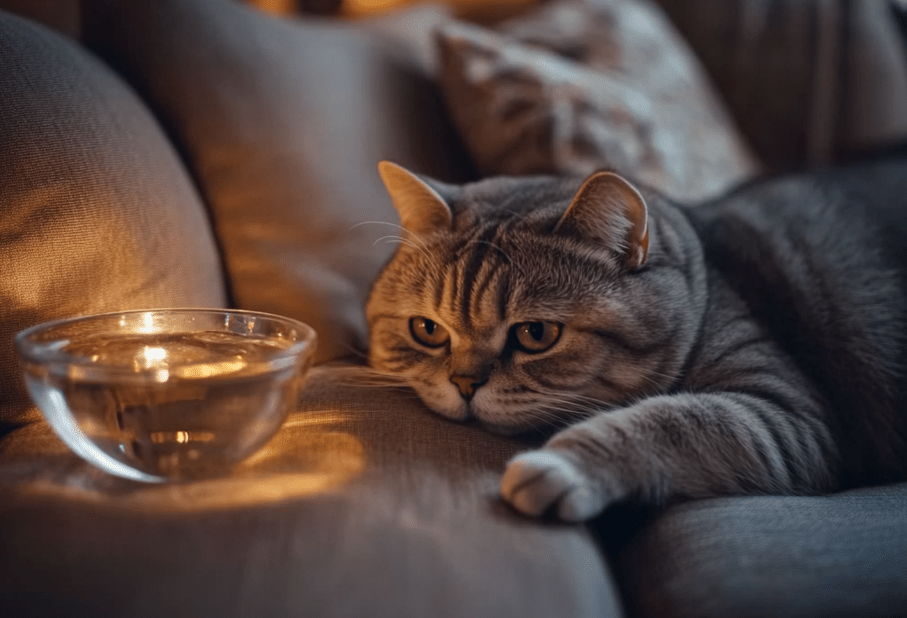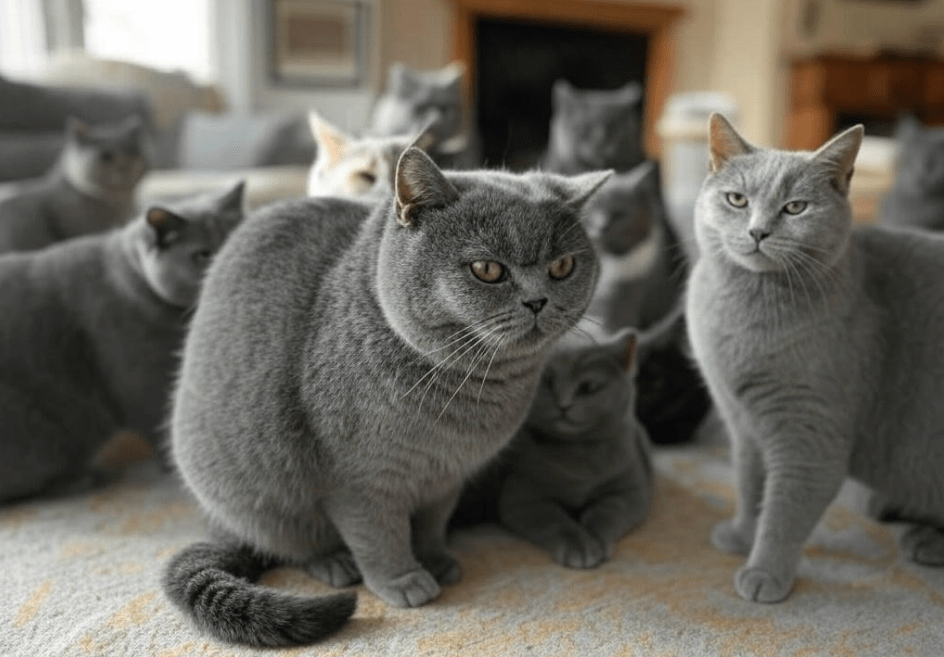
British Shorthair cats, with their plush coats and gentle personalities, are cherished companions known for their robust build and affectionate nature. However, their kidneys are particularly vulnerable as they age, making kidney health a top priority for owners. Keeping your British Shorthair’s kidneys healthy is essential for their longevity and quality of life. This comprehensive guide explores evidence-based strategies to support kidney function, covering diet, hydration, veterinary care, and lifestyle adjustments. By following these steps, you can help your British Shorthair thrive and enjoy a vibrant, healthy life.
Understanding Kidney Health in British Shorthairs
The kidneys play a critical role in a cat’s health, filtering waste from the blood, regulating hydration, and balancing electrolytes. In British Shorthairs, kidney issues, such as chronic kidney disease (CKD), are common, particularly in older cats. CKD is a progressive condition that impairs kidney function, leading to symptoms like increased thirst, weight loss, and lethargy. Early prevention and proactive care can slow the progression of kidney disease and maintain your cat’s well-being.
Why British Shorthairs Are Prone to Kidney Issues
Several factors contribute to the British Shorthair’s susceptibility to kidney problems:
Genetics: Some British Shorthairs may have a genetic predisposition to kidney conditions, such as polycystic kidney disease (PKD), though it’s less common than in breeds like Persians.
Age: Kidney function naturally declines with age, and British Shorthairs, with lifespans of 12-20 years, are at risk as seniors.
Obesity: Their stocky build (9-18 pounds) can lead to obesity, which strains the kidneys and increases disease risk.
Diet and Hydration: Inadequate water intake or poor-quality diets can stress the kidneys over time.
Understanding these risk factors allows you to tailor a kidney health plan for your British Shorthair.
Key Strategies to Keep Kidneys Healthy
Preventing kidney issues in British Shorthair cats requires a multifaceted approach. Below, we outline practical, evidence-based strategies to promote kidney health and reduce the risk of disease.
1. Encourage Proper Hydration
Adequate hydration is essential for kidney health, as it supports filtration and prevents the buildup of toxins in the urinary system.
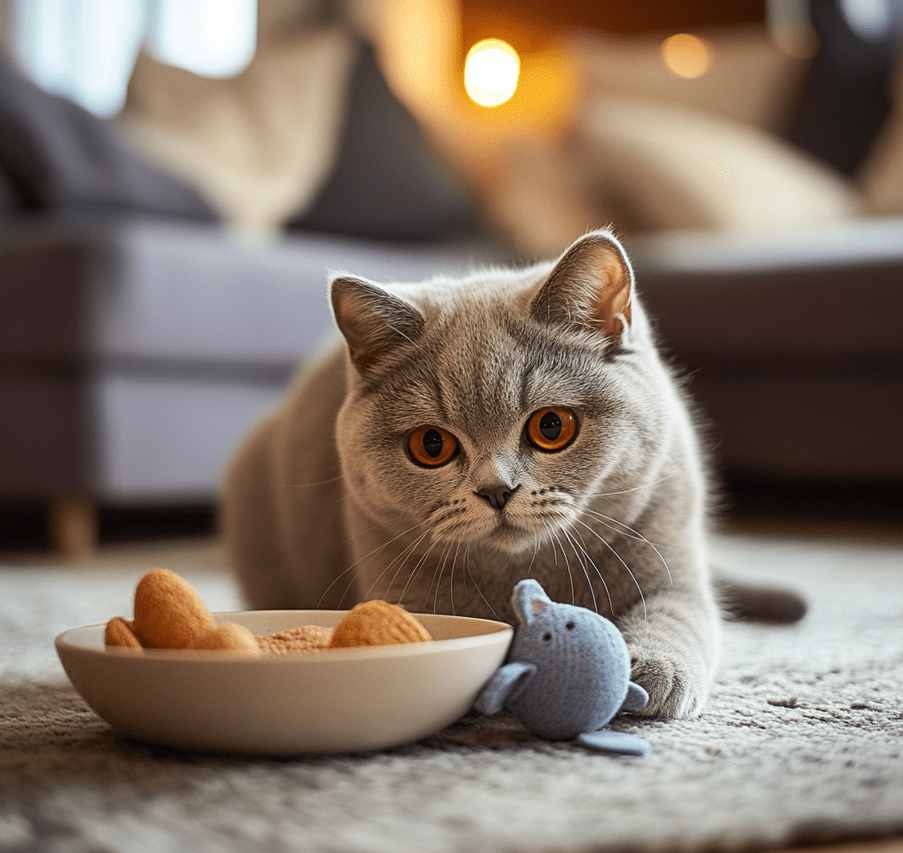
Provide Fresh Water: Ensure clean, fresh water is available at all times. Change water daily to keep it appealing.
Use a Cat Water Fountain: British Shorthairs are often drawn to running water. A pet fountain, such as those from Catit or PetSafe, encourages drinking, reducing the risk of concentrated urine.
Incorporate Wet Food: Wet cat food contains 70-80% moisture, significantly increasing water intake. Aim to include wet food in your cat’s daily diet to support kidney function.
Multiple Water Stations: Place water bowls in various locations, away from food and litter boxes, to make drinking more accessible.
Monitor your cat’s water intake and consult your veterinarian if they seem reluctant to drink, as this could signal an underlying issue.
2. Feed a Kidney-Friendly Diet
A high-quality, balanced diet tailored to kidney health can reduce stress on the kidneys and support overall wellness.
High-Quality Protein: Choose diets with digestible, high-quality protein sources (e.g., chicken or fish) to minimize kidney workload while maintaining muscle mass.
Low Phosphorus: Diets low in phosphorus reduce strain on the kidneys, especially in cats with early kidney issues. Look for kidney-support formulas from brands like Hill’s Prescription Diet k/d or Royal Canin Renal Support.
Omega-3 Fatty Acids: Found in fish oil, omega-3s have anti-inflammatory properties that support kidney health. Many premium cat foods include EPA and DHA.
Controlled Sodium: Moderate sodium levels help maintain healthy blood pressure, which is crucial for kidney function.
Avoid Toxins: Ensure your cat’s food is free from artificial additives or low-quality ingredients that could stress the kidneys.
Consult your veterinarian before changing your cat’s diet, especially if they have a history of kidney issues or other health concerns.
3. Maintain a Healthy Weight
Obesity is a significant risk factor for kidney disease, as excess weight increases inflammation and metabolic stress.
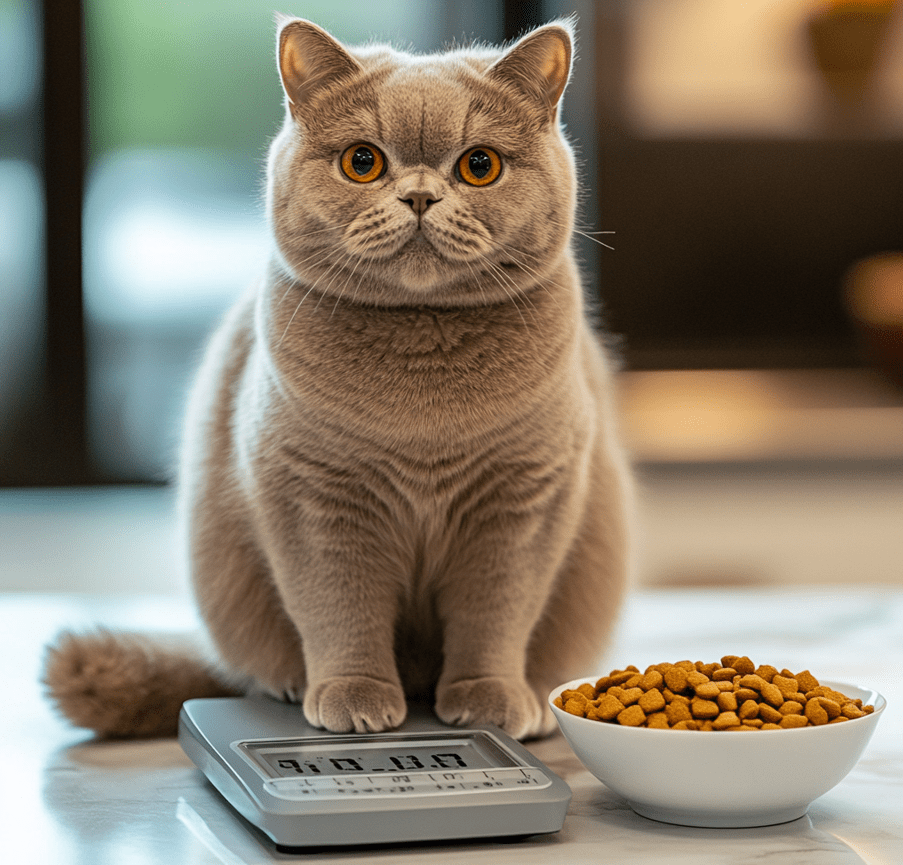
Monitor Body Condition: Use a body condition score chart to assess your cat’s weight. British Shorthairs should have a defined waistline and palpable ribs.
Control Portions: Measure food with a cup to avoid overfeeding, and follow feeding guidelines for your cat’s ideal weight.
Encourage Exercise: Engage your cat in gentle play with feather wands, laser pointers, or interactive toys to promote activity and weight management. Short, daily sessions (5-10 minutes) are ideal.
Regular weigh-ins and veterinary guidance can help keep your British Shorthair at a healthy weight, reducing kidney strain.
4. Schedule Regular Veterinary Checkups
Routine veterinary care is critical for monitoring kidney health and catching issues early.
Annual or Biannual Exams: Regular checkups allow your vet to assess your cat’s kidney function, weight, and overall health.
Blood and Urine Tests: Tests like blood urea nitrogen (BUN), creatinine, and urinalysis can detect early signs of kidney dysfunction before symptoms appear.
Blood Pressure Monitoring: High blood pressure, common in older cats, can damage the kidneys. Regular checks help manage this risk.
Imaging: Ultrasounds or X-rays may be recommended to screen for polycystic kidney disease or other structural issues.
Early detection through veterinary care can slow kidney disease progression and improve outcomes.
5. Minimize Exposure to Toxins
Toxins can damage the kidneys, so reducing your British Shorthair’s exposure is crucial.
Avoid Harmful Substances: Keep antifreeze, lilies, certain medications (e.g., ibuprofen), and toxic plants out of reach, as these are highly toxic to cats.
Use Safe Cleaning Products: Choose pet-safe cleaners to avoid chemical exposure that could harm the kidneys.
Monitor Medications: Only administer medications prescribed by your veterinarian, as some drugs (e.g., NSAIDs) can affect kidney function if misused.
Creating a toxin-free environment protects your cat’s kidneys and overall health.
6. Manage Stress to Support Kidney Health
Stress can exacerbate kidney issues by increasing blood pressure and inflammation. British Shorthairs, despite their calm demeanor, can experience stress from environmental changes.
Create a Calm Environment: Provide safe, quiet spaces, such as cat trees or cozy beds, where your cat can relax.
Enrich Their Environment: Offer toys, scratching posts, and window perches to keep your cat mentally stimulated. Interactive play reduces stress and promotes activity.
Maintain Routine: Cats thrive on consistency. Avoid sudden changes to feeding schedules or household dynamics.
Use Pheromone Diffusers: Products like Feliway release calming pheromones that can reduce stress-related health issues.
A stress-free environment supports kidney health and enhances your cat’s overall well-being.
7. Monitor for Early Signs of Kidney Issues
Being vigilant for signs of kidney problems allows for prompt intervention.
Increased Thirst and Urination: Drinking and urinating more than usual can indicate early kidney dysfunction.
Weight Loss: Unexplained weight loss, despite a normal appetite, is a common sign of kidney disease.
Lethargy: Reduced energy or reluctance to play may signal kidney issues.
Poor Appetite: Cats with kidney problems may eat less or become picky.
Vomiting or Bad Breath: These can occur as toxins build up in the body due to impaired kidney function.
If you notice any of these signs, contact your veterinarian immediately for a thorough evaluation.
8. Consider Supplements for Kidney Support
Certain supplements can complement a kidney-friendly diet and support renal function.
Omega-3 Fatty Acids: Fish oil supplements, such as those from Nordic Naturals, reduce inflammation and support kidney health.
Antioxidants: Vitamins C and E, found in some vet-approved supplements, combat oxidative stress that can damage kidneys.
B-Complex Vitamins: These support overall health and replace vitamins lost through increased urination in kidney disease.
Probiotics: A healthy gut microbiome may reduce systemic inflammation, indirectly supporting kidney function.
Consult your veterinarian before adding supplements to ensure they are safe and appropriate for your British Shorthair.
Common Kidney Conditions in British Shorthairs
Understanding the kidney conditions that affect British Shorthairs can help you take targeted preventive measures.
Chronic Kidney Disease (CKD)
CKD is the most common kidney issue in older cats, including British Shorthairs. It involves gradual loss of kidney function, leading to toxin buildup and electrolyte imbalances. Preventive strategies include hydration, a kidney-friendly diet, and regular veterinary monitoring.
Polycystic Kidney Disease (PKD)
PKD, though less common in British Shorthairs than in Persians, involves cysts forming in the kidneys, impairing function. Genetic screening by reputable breeders can reduce the risk, and regular ultrasounds can detect cysts early.
Acute Kidney Injury (AKI)
AKI is sudden kidney damage, often caused by toxins, infections, or dehydration. Prompt veterinary care is critical, and prevention involves minimizing toxin exposure and ensuring hydration.
Urinary Tract Issues
Kidney health is closely linked to the urinary tract. Conditions like urinary tract infections (UTIs) or bladder stones can stress the kidneys. Preventive measures include hydration and a urinary-friendly diet.
The Role of Hydration in Kidney Health
Hydration is a cornerstone of kidney health, as it supports filtration and prevents toxin buildup.
Wet Food Benefits: Wet food not only increases water intake but also provides balanced nutrition for kidney health.
Water Quality: Use filtered or bottled water if your tap water is high in minerals, as this can contribute to kidney stress.
Monitor Intake: Track how much your cat drinks daily. A sudden decrease may indicate a health issue.
Hydration is a simple yet powerful tool for maintaining your British Shorthair’s kidney function.
Environmental Enrichment and Kidney Health
A stimulating environment can reduce stress and encourage healthy behaviors that support kidney health.

Interactive Toys: Puzzle feeders or balls promote mental and physical activity, reducing stress-related kidney issues.
Safe Spaces: Provide perches or hideaways where your cat can relax undisturbed.
Regular Play: Short, daily play sessions keep your cat active and help maintain a healthy weight.
Enrichment supports both mental and kidney health, creating a well-rounded approach to prevention.
Choosing the Right Products for Kidney Health
Selecting high-quality products can make a significant difference in supporting your British Shorthair’s kidneys.
Cat Food: Brands like Hill’s Science Diet, Royal Canin, or Purina Pro Plan offer kidney-support formulas.
Water Fountains: PetSafe or Catit fountains are durable and encourage drinking.
Supplements: Vet-recommended options include Vetoquinol Azodyl or Nutramax Denamarin for kidney and liver support.
Litter Boxes: Large, low-entry boxes like the Petmate Giant ensure comfort for senior cats with kidney issues.
Read labels, check for veterinary endorsements, and consult your vet to ensure products meet your cat’s needs.
Common Mistakes to Avoid
When supporting kidney health in British Shorthairs, avoid these pitfalls:
Ignoring Subtle Signs: Dismissing changes like increased thirst or weight loss can delay diagnosis.
Feeding Inappropriate Diets: High-phosphorus or low-quality foods can stress the kidneys.
Neglecting Hydration: Relying solely on dry food can lead to chronic dehydration.
Skipping Veterinary Checkups: Regular monitoring is essential for early detection of kidney issues.
Proactive care and attention to detail can prevent these mistakes and promote kidney health.
Advances in Feline Kidney Care
Recent advancements have improved kidney health management for British Shorthairs:
Early Diagnostic Tools: Blood tests like SDMA (symmetric dimethylarginine) detect kidney issues earlier than traditional markers.
Prescription Diets: Advanced formulas provide precise nutrient profiles to support kidney function.
Subcutaneous Fluids: Home fluid therapy, under veterinary guidance, can manage CKD in advanced cases.
Genetic Screening: Testing for PKD and other hereditary conditions is more accessible, aiding prevention.
These innovations empower owners to take proactive steps for kidney health.
Conclusion
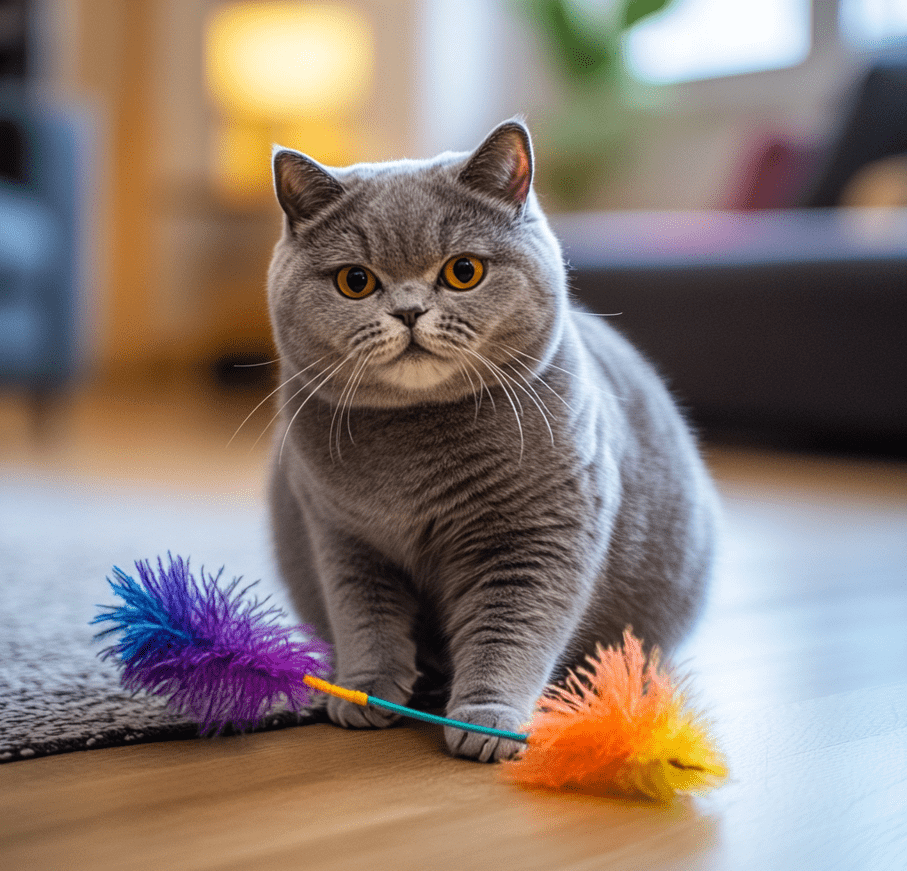
Keeping your British Shorthair’s kidneys healthy is a vital aspect of ensuring their long-term health and happiness. By prioritizing hydration, feeding a kidney-friendly diet, maintaining a healthy weight, and scheduling regular veterinary checkups, you can significantly reduce the risk of kidney disease. Minimizing toxins, managing stress, and monitoring for early signs further support your cat’s renal health, allowing them to thrive in their golden years.
With dedication and the right strategies, you can provide your British Shorthair with the best possible care. For personalized advice, consult your veterinarian to create a tailored kidney health plan for your beloved feline companion.

